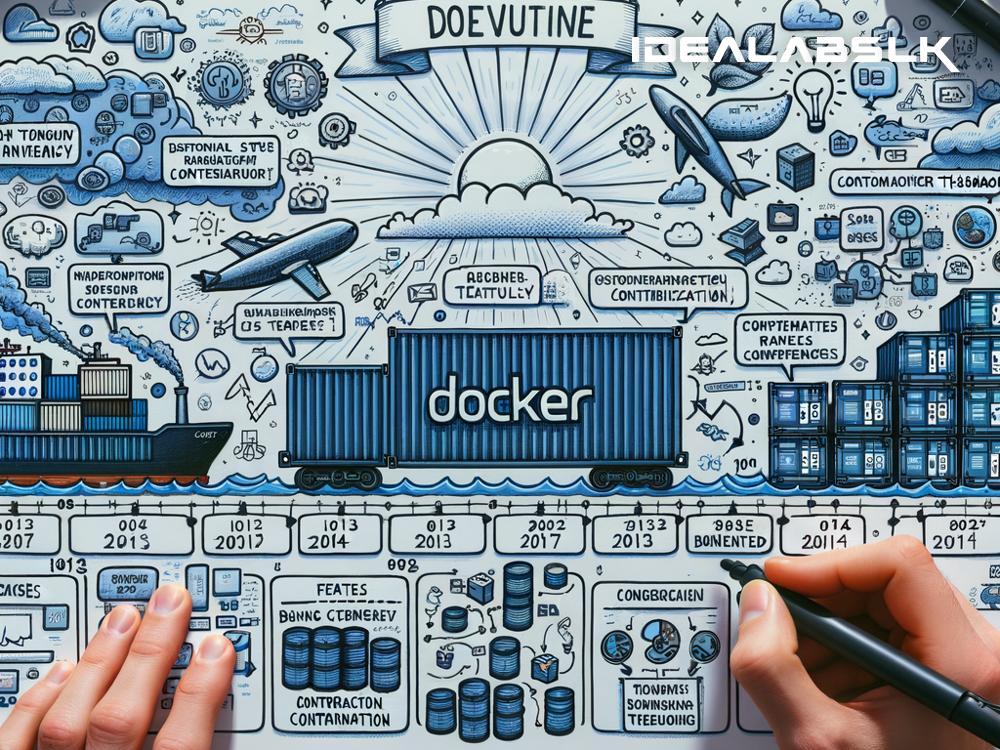The Evolution of Docker: Simplifying Development, One Container At A Time
In the vast and ever-evolving universe of software development, Docker has emerged as a shining star, revolutionizing how developers build, ship, and run applications. But how did Docker come to be such a pivotal tool in the tech world? Let's embark on a journey through the evolution of Docker and understand its significant impact in simple English.
The Birth of Docker (2013)
Imagine you are trying to fit a square peg into a round hole. That's how developers felt before 2013 when trying to move software from one computing environment to another. It was a hassle, often leading to the dreaded "it works on my machine" syndrome. Then came Docker, introduced by Solomon Hykes during a PyCon talk, transforming that square peg into a universally fitting piece.
Docker introduced the concept of containerization. In simpler terms, containers are like lightweight, portable packages that contain everything your software needs to run. This means no more "it works on my machine" issues, as containers ensure consistency across environments, from a developer’s laptop all the way to production.
The Rise to Fame (2014-2016)
Docker quickly caught the attention of developers and companies for its ability to simplify the deployment process and ensure consistency across various environments. It wasn't just about packing and shipping anymore; it was about doing it efficiently and reliably. Docker's popularity soared because it was open-source, allowing a community of developers to contribute, refine, and extend its capabilities.
Microsoft announced support for Docker on Windows Server in 2014, further propelling Docker into the mainstream. Docker Hub, the cloud-based registry service, became the place to share and access Docker images (the files used to build containers), fostering an era of collaboration and sharing in the development community.
Expansion and Ecosystem Growth (2017-2019)
As Docker's popularity surged, so did its ecosystem. Tools like Docker Compose made it simple to define and share multi-container applications, while Docker Swarm offered a native clustering solution for Docker containers. The company embraced the challenge of managing containers at scale by enhancing orchestration, security, and networking features, ensuring Docker's relevance in a world rapidly moving towards microservices and cloud-native development.
During this period, Docker also made strategic moves to solidify its place in the enterprise world. They introduced Docker Enterprise Edition, providing businesses with additional security, management, and support features necessary for large-scale operations. Docker's ecosystem continued to evolve, integrating with major cloud providers and broadening its reach.
The Era of Kubernetes and Restructuring (2020-Present)
Despite Docker's widespread adoption, Kubernetes, another container orchestration tool, started gaining immense popularity for its ability to manage containers at scale more effectively. Recognizing this shift, Docker began to focus more on the development experience, ensuring Docker and Kubernetes worked well together, laying the groundwork for a symbiotic relationship that benefits developers.
In 2020, Docker sold its enterprise business and decided to concentrate on what it does best – simplifying the lives of developers. This move underscored Docker's commitment to its core community, focusing on improving Docker Desktop, Docker Hub, and supporting Docker Compose, amongst other developer tools.
The Future and Beyond
Today, Docker continues to play a crucial role in the software development lifecycle, adapting to the needs of modern development practices. It fosters innovation by making development simple and accessible to millions around the world, enabling the creation of applications that change how we live and work.
Docker's journey showcases the importance of simplicity, community, and adaptability in technology. It has democratized software development, allowing individuals and companies to build, share, and run applications like never before. As we look to the future, Docker's evolution will undoubtedly continue, likely in ways we can only begin to imagine.
In Conclusion
The evolution of Docker from a simple containerization tool to a comprehensive platform supporting the entire development lifecycle is a testament to its impact on the tech industry. By simplifying complex processes and fostering a collaborative community, Docker has not only revolutionized software development but has also paved the way for future innovations. As we continue to navigate the digital age, Docker's journey offers valuable lessons in resilience, adaptability, and the transformative power of technology.

